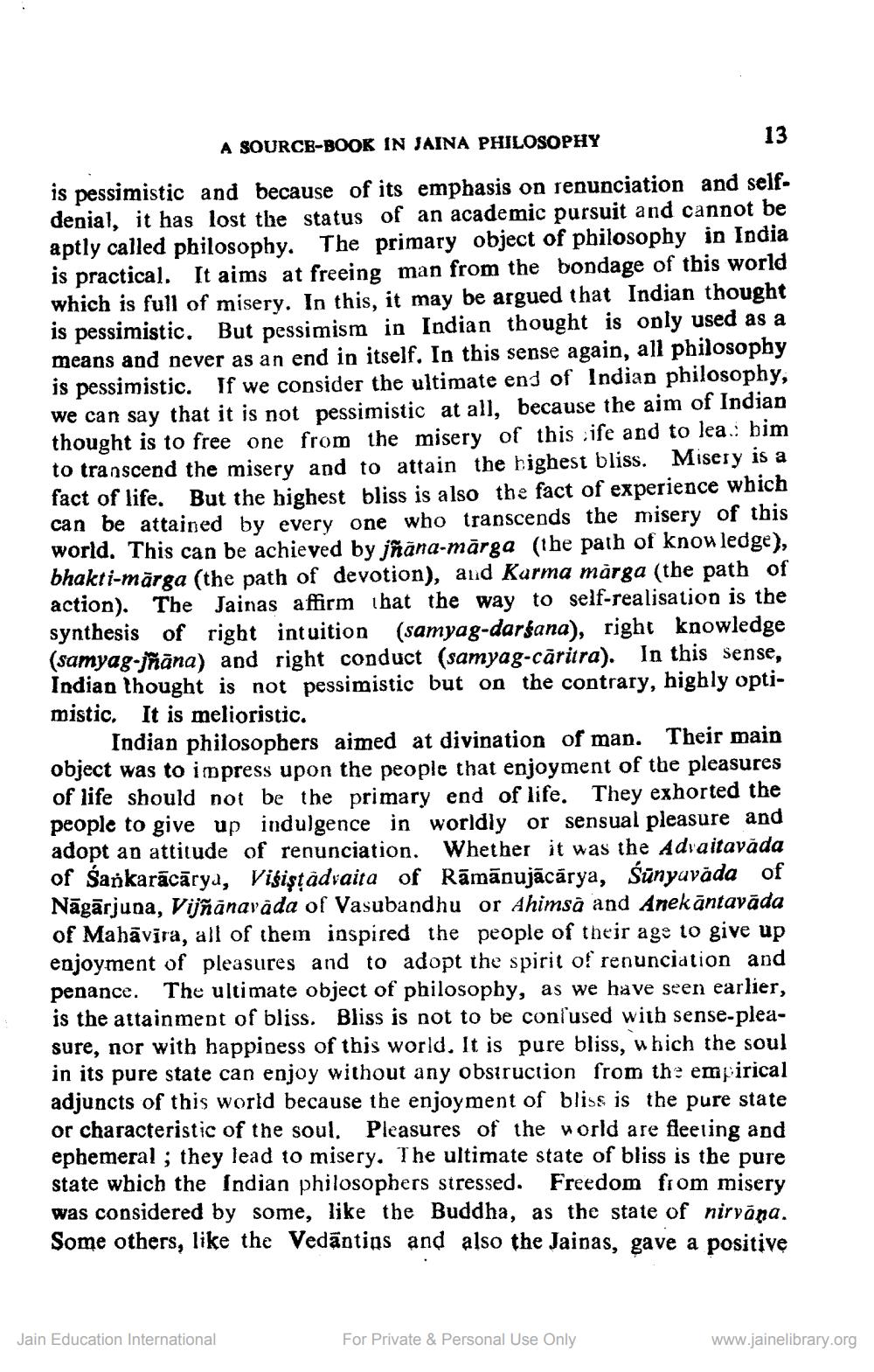________________
A SOURCB-BOOK IN JAINA PHILOSOPHY
13 is pessimistic and because of its emphasis on renunciation and selfdenial, it has lost the status of an academic pursuit and cannot be aptly called philosophy. The primary object of philosophy in India is practical. It aims at freeing man from the bondage of this world which is full of misery. In this, it may be argued that Indian thought is pessimistic. But pessimism in Indian thought is only used as a means and never as an end in itself. In this sense again, all philosophy is pessimistic. If we consider the ultimate end of Indian philosophy, we can say that it is not pessimistic at all, because the aim of Indian thought is to free one from the misery of this .ife and to lea: bim to transcend the misery and to attain the highest bliss. Misery is a fact of life. But the highest bliss is also the fact of experience which can be attained by every one who transcends the misery of this world. This can be achieved by jñāna-mārga (the path of know ledge), bhakti-mārga (the path of devotion), and Karma märga (the path of action). The Jainas affirm ibat the way to self-realisation is the synthesis of right intuition (samyag-darśana), right knowledge (samyag-jñāna) and right conduct (samyag-căritra). In this sense, Indian thought is not pessimistic but on the contrary, higbly optimistic. It is melioristic.
Indian philosopbers aimed at divination of man. Their main object was to impress upon the people that enjoyment of the pleasures of life should not be the primary end of life. They exhorted the people to give up indulgence in worldly or sensual pleasure and adopt an attitude of renunciation. Whether it was the Advaitavada of sankarācārya, Vigistadvaita of Rāmānujācārya, Sūnyavāda of Nāgārjuna, Vijñānavāda of Vasubandhu or Ahimsa and Anekāntavāda of Mahāvira, all of them inspired the people of their age to give up enjoyment of pleasures and to adopt the spirit of renunciation and penance. The ultimate object of philosophy, as we have seen earlier, is the attainment of bliss. Bliss is not to be confused with sense-pleasure, nor with happiness of this world. It is pure bliss, which the soul in its pure state can enjoy without any obstruction from the empirical adjuncts of this world because the enjoyment of bliss is the pure state or characteristic of the soul. Pleasures of the world are fleeting and ephemeral ; they lead to misery. The ultimate state of bliss is the pure state which the Indian philosophers stressed. Freedom from misery was considered by some, like the Buddha, as the state of nirvana. Some others, like the Vedāntins and also the Jainas, gave a positive
Jain Education International
For Private & Personal Use Only
www.jainelibrary.org




